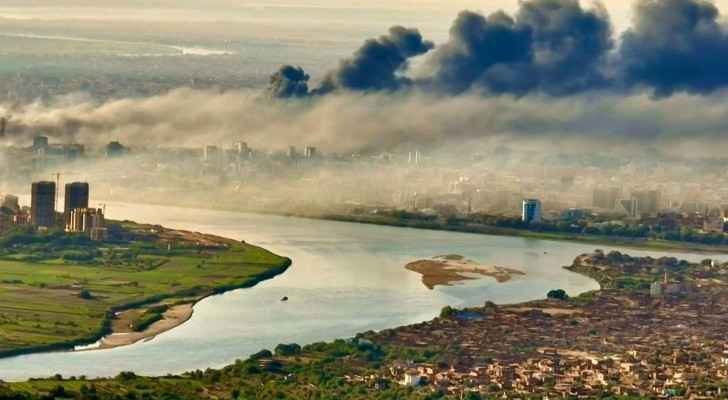Sudan’s daily battle against RSF costs $1.5 million, estimates expert
May 23, 2023 (KHARTOUM) – A retired Sudanese army officer has revealed that the ongoing war between the Sudanese army and the Rapid Support Forces costs an estimated 900 million pounds, roughly 1.5 million dollars, per day.
The conflict has been raging since mid-April, with both sides accusing each other of planning a coup and launching attacks.
The former army officer, who previously served in the Land Forces and Supplies Command, estimated that the 38-day war had cost more than $57 million, including supplies and spending on soldiers and subsistence.
He warned that the prolonged fighting could endanger the state’s financial position.
He emphasized that he lacks any estimates of the expenses incurred on the civilian side and the losses inflicted by the war.
He added, “This is an issue that cannot be estimated until after the battles are over, but for the soldiers, it costs a lot and more than that irreplaceable lives,” he said.
An official from the Rapid Support Forces stated that they have not yet calculated the expenses of countering an alleged “coup attempt by the Islamic Movement’s members within the army”.
According to him, the Rapid Support Forces are well-equipped with weapons and ammunition to counter the “coup.” Additionally, the RSF Command has resumed the payment of salaries to its soldiers after the head of the Sovereign Council decided to halt them last week.
During an interview with Sudan Tribune, Dr Haitham Mohamed Fathi, an economist, revealed that a group of economic experts conducted a preliminary study which estimated the war losses to be nearly $4 billion.
As per his statement, the calculations consider the damages caused to civilians due to RSF assaults, destruction of public and private properties, bank robberies, and attacks on buildings.
The study thoroughly examined the economic losses incurred from halting production in Khartoum, encompassing agriculture, industry, services, and trade exchanges with other nations.
Haitham believed that the loss incurred during the short war period was significant. However, this was due to the extensive damage to infrastructure and factories, the disruption of banks and exports, a lack of stability in shops, schools, and universities, as well as the cost of crossing Sudanese airspace. All of these factors contributed to the high loss.
He expected a study to be conducted after the war stopped to compensate for those losses and how to rebuild and build.
The expert talked about an increase in the cost of war losses to 20-30% if the destruction operations continued and life stopped in the heart of Khartoum, the economic and political capital.
He warned of other losses, including the cessation of inter-border trade with Egypt, Ethiopia, Eritrea and South Sudan.
Haitham said that the reconstruction process would take years because the amount of losses is expensive and necessitates the establishment of a fund for reconstruction and construction under regional sponsorship from the Friends of Sudan.
The cost of the war that Darfur witnessed for more than 12 years was high on the economic and human levels. Estimates of the Al Jazeera Center for Studies showed that the government of Sudan spent $24.07 billion on the war in Darfur, equivalent to 162% of the gross domestic product during the war years.
Political science professor Mohamed Idris told Sudan Tribune that measuring the cost of war in terms of the three human, economic and military aspects cannot be calculated accurately nowadays.
According to Idris, the ongoing war in the capital is increasing its human, economic, and military cost with the collapse of the economy and the suspension of work in the government and production sectors.
The current situation has a nationwide impact, not limited to Khartoum alone. He further said that the capital serves as the primary hub for all economic activities, and the widespread stagnation in markets across various states has resulted in the halt of goods flow.
It is believed that Sudan could potentially suffer significant financial losses of billions of dollars due to the ongoing conflict between the Sudanese army and the Rapid Support Forces.

